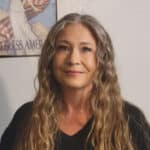
On Wednesday, Anthony Fauci was questioned under oath by Attorneys General Eric Schmitt (Missouri) and Jeff Landry (Louisiana) in their lawsuit against the federal government for colluding with big tech to suppress information about Hunter Biden’s laptop, Covid-19, and Covid-19 vaccines under the guise of combating what they call “misinformation”.
Eric Schmitt shared these key takeaways from Fauci’s deposition:
- Fauci knew the Lab Leak theory had merit but it’d come back to him & sought to immediately discredit it
- He defended lockdowns
- The rest of us “don’t have the ability” to determine what’s best for ourselves
According to The Epoch Times, Fauci said he could not recall key details about his actions during the COVID-19 plandemic.
“It was amazing, literally, that we spent seven hours with Dr. Fauci—this is a man who single-handedly wrecked the U.S. economy based upon ‘the science, follow the science.’ And over the course of seven hours, we discovered that he can’t recall practically anything dealing with his COVID response,” Landry told The Epoch Times after leaving the deposition. “He just said, ‘I can’t recall, I haven’t seen that. And I think we need to put these documents into context,’” Landry added.
“He just said, ‘I can’t recall, I haven’t seen that. And I think we need to put these documents into context,’” Landry added.
“It was extremely troubling to realize that this is a man who advises presidents of the United States and yet couldn’t recall information he put out, information he discussed, press conferences he held dealing with the COVID-19 response,” Landry said later.
Jenin Younes with the New Civil Liberties Alliance, another lawyer representing plaintiffs in the case, provided details regarding Fauci’s deposition.
From The Epoch Times:
Jenin Younes with the New Civil Liberties Alliance, another lawyer representing plaintiffs in the case, said that Fauci claimed he did not worry about a document called the Great Barrington Declaration.
Penned in October 2020, the document called for focused protection on people most at-risk from COVID-19 while rescinding the harsh restrictions that had been imposed on children and others at little risk from the disease. Two of its authors, Dr. Jay Bhattacharya and Martin Kulldorff, are plaintiffs in the case.
Fauci, though, has spoken multiple times about the declaration.
In internal emails that were later published, Fauci and Dr. Francis Collins, Fauci’s former boss, both criticized the declaration. “There needs to be a quick and devastating published takedown of its premises,” Collins wrote, prompting Fauci to send him a Wired magazine article he claimed “debunks this theory.”
In another missive, obtained by The Epoch Times through a Freedom of Information Act request, Fauci said the declaration reminded him of AIDS denialism.
Fauci also talked about the declaration in public, including defending his criticism during a congressional hearing in May.
“I have come out very strongly publicly against the Great Barrington Declaration,” Fauci wrote to Dr. Deborah Birx in another email.


The Great Barrington Declaration:
The Great Barrington Declaration – As infectious disease epidemiologists and public health scientists we have grave concerns about the damaging physical and mental health impacts of the prevailing COVID-19 policies, and recommend an approach we call Focused Protection.
Coming from both the left and right, and around the world, we have devoted our careers to protecting people. Current lockdown policies are producing devastating effects on short and long-term public health. The results (to name a few) include lower childhood vaccination rates, worsening cardiovascular disease outcomes, fewer cancer screenings and deteriorating mental health – leading to greater excess mortality in years to come, with the working class and younger members of society carrying the heaviest burden. Keeping students out of school is a grave injustice.
Keeping these measures in place until a vaccine is available will cause irreparable damage, with the underprivileged disproportionately harmed.
Fortunately, our understanding of the virus is growing. We know that vulnerability to death from COVID-19 is more than a thousand-fold higher in the old and infirm than the young. Indeed, for children, COVID-19 is less dangerous than many other harms, including influenza.
As immunity builds in the population, the risk of infection to all – including the vulnerable – falls. We know that all populations will eventually reach herd immunity – i.e. the point at which the rate of new infections is stable – and that this can be assisted by (but is not dependent upon) a vaccine. Our goal should therefore be to minimize mortality and social harm until we reach herd immunity.
The most compassionate approach that balances the risks and benefits of reaching herd immunity, is to allow those who are at minimal risk of death to live their lives normally to build up immunity to the virus through natural infection, while better protecting those who are at highest risk. We call this Focused Protection.
Adopting measures to protect the vulnerable should be the central aim of public health responses to COVID-19. By way of example, nursing homes should use staff with acquired immunity and perform frequent testing of other staff and all visitors. Staff rotation should be minimized. Retired people living at home should have groceries and other essentials delivered to their home. When possible, they should meet family members outside rather than inside. A comprehensive and detailed list of measures, including approaches to multi-generational households, can be implemented, and is well within the scope and capability of public health professionals.
Those who are not vulnerable should immediately be allowed to resume life as normal. Simple hygiene measures, such as hand washing and staying home when sick should be practiced by everyone to reduce the herd immunity threshold. Schools and universities should be open for in-person teaching. Extracurricular activities, such as sports, should be resumed. Young low-risk adults should work normally, rather than from home. Restaurants and other businesses should open. Arts, music, sport and other cultural activities should resume. People who are more at risk may participate if they wish, while society as a whole enjoys the protection conferred upon the vulnerable by those who have built up herd immunity.



